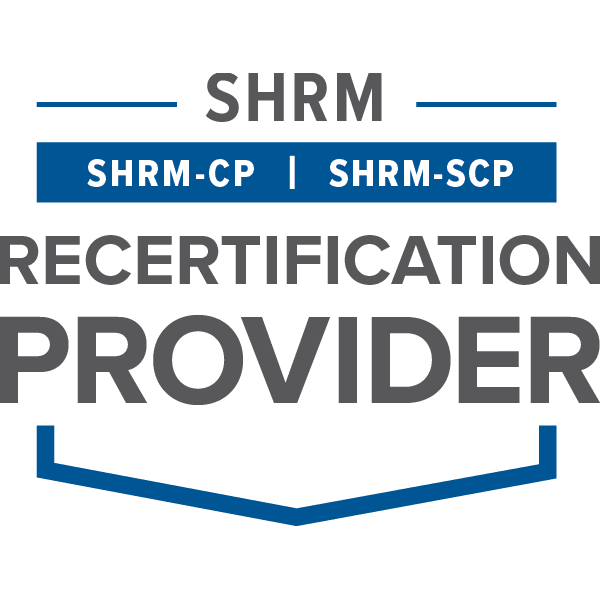Course Preview
Security officers must be prepared to face tense situations and angry individuals on any given day. Even though many days on the job are uneventful and consist mainly of routine patrols, security professionals can face dangerous situations when least expected, and these can range from angry outbursts to threats and vandalism. It’s important for security officers to recognize that a stressful situation can quickly become dangerous when not handled correctly. De-escalation training is an important part of any job training for security personnel.
Why is De-escalation Training So Important for Security Officers?
Confronting people who are full of anger or agitation is one of the most challenging aspects of working as a security guard. Individuals who work in law enforcement agencies need to consider their own safety as well as the safety of others that are nearby. Mastery of de-escalation strategies can help reduce the risk of innocent people getting hurt and keep people safe from violence and harm.
Physical force should rarely be used by security guards as the first de-escalation option when faced with a difficult situation. To prevent agitation from exploding into violence, de-escalation strategies provide a way of reducing tension and calming the person down.
Warning Signs of Escalating Intensity
Private security officers are expected to protect people and property, and recognizing there’s a problem that’s quickly intensifying is imperative to maintain peace and safety. Some of the warning signs of a problem that’s growing in intensity include pacing, talking loudly, heavy breathing, or a flushed complexion.
It’s not a good idea to try to fight fire with fire when dealing with irate individuals. Responding to tirades with a loud and aggressive tone can trigger combative responses. De-escalation training includes training in verbal de-escalation techniques that can help de-escalate a situation before it continues to get worse and help lead to successful conflict resolution.
De-Escalation Techniques
Listening
Many people who become very agitated are frustrated or angry because they feel their feelings and priorities are being ignored. Security professionals often need to let people vent so that they know their concerns are being heard. Letting them say what they need to say can help them to feel validated.
Listening skills aren’t as easy as they may sound and most people don’t listen as well as they think they do. Learning or improving active listening skills is an important part of de-escalation training for security guards. Communicate to an agitated person that they’re being heard by making eye contact, nodding your head while appropriate, and asking questions to seek clarification.
Building Rapport
Communication skills are an important part of any security position. The words you choose and the way you present them can be powerful tools when dealing with an angry person. Working to build rapport by finding common ground may help to defuse a volatile situation. Ask open-ended questions to encourage them to communicate with you in an effort to get to the bottom of the actual issue. People who are angry often have legitimate grievances that need to be resolved. Consider whether an apology is needed.
Be Empathetic
There are often underlying issues that cause a person to become increasingly angry and their behavior doesn’t reveal everything that’s going on underneath. Each person has their own story that contributes to who they are and how they react to what’s going on around them. Consider the specific needs of that individual. For example, if a person is mentally ill, they may not have the ability to control their emotions. Security guards must work on being empathetic to the struggles people are dealing with.
Pay Attention to Body Language
The effectiveness of the way a security guard handles difficult situations also depends on body language. A person that’s upset may get more upset if they perceive body language, tone of voice, or facial expressions that seem to be hostile or confrontational.
Practicing Emotional Control
When a security officer is dealing with an angry person, the last thing you want to do is lose control of your emotions. As a security officer, staying calm and in control at all times is crucial. Don’t show signs of being angry such as raising your voice. Letting others know that you’re feeling reactive may intensify the situation.
Resolving Conflict Between Others
Security officers may have to get involved when a conflict between two or more individuals erupts. Active listening and decision-making skills are both important de-escalation tactics for resolving conflict between others. Give each of those in conflict a chance to communicate their side of things without emotional outbursts.
It can be helpful for a security officer to repeat back to those in conflict what you believe they’ve said. This gives them a chance to let you know if you’ve misunderstood or missed any important details. Both sides can hear the other person’s perspective in a calmer and less intense way which helps to de-escalate tension.
When De-Escalation Tactics Don’t Work
Unfortunately, not every situation can be de-escalated by approaching the other person with calmness. A violent person that is harming you or another person or threatening people with a weapon must be dealt with swiftly.
Whenever possible, use de-escalation techniques and try to prevent the use of force. At the same time, it’s important to recognize when de-escalation techniques aren’t successful and other tactics have to be used. While the goal is to find a peaceful resolution if possible, it’s imperative to maintain the safety of the officer and others.
Practicing and Improving De-Escalation Techniques
Those in the security profession are frequently presented with new and different situations, and there’s no real graduation date in which you’ll always know what to do no matter what comes up. Each tense or intensifying situation is an opportunity to practice and improve de-escalation methods. It’s essential to work on recognizing and avoiding barriers to effective communication and improve your ability to handle challenging situations by learning how to de-escalate agitation before it gets worse.
Need de-escalation training for your team? Get in touch to see how we can help!
Other De-Escalation Courses
PLA is recognized by the Society for Human Resource Management
to offer Professional Development Credits (PDCs) for SHRM-CP® or SHRM-SCP® recertification activities.











